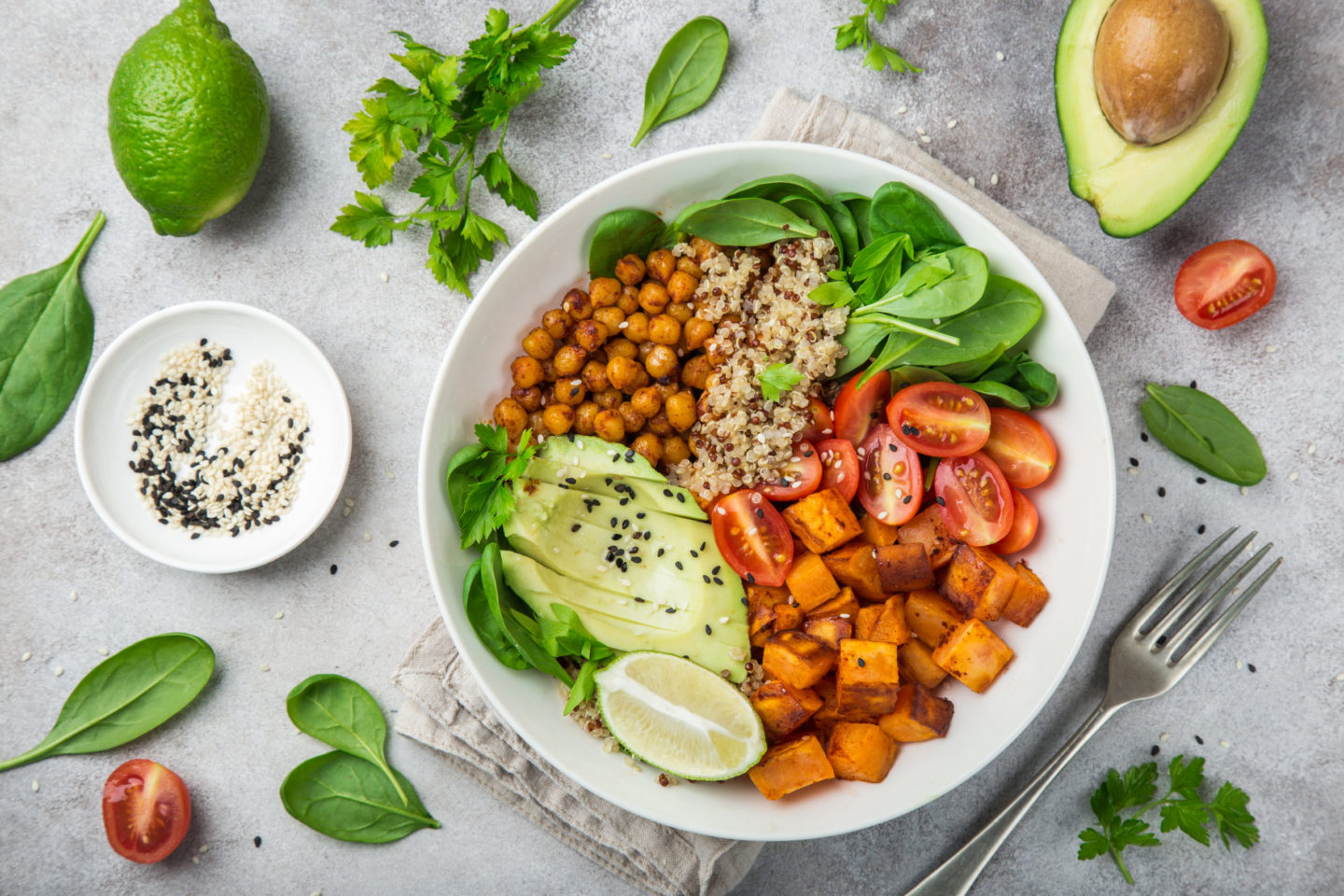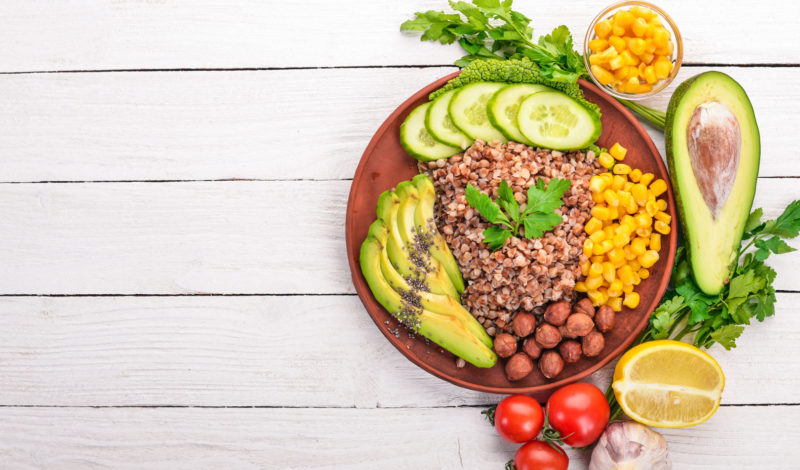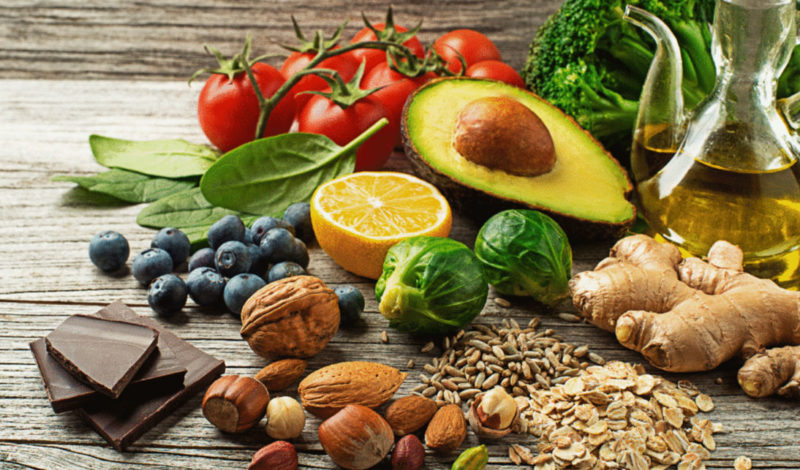With vegans, nothing coming from an animal can get on the plate. They live without meat, fish, eggs, honey and [...]

Carefree vegan: avoid vitamin B12 deficiency and other vitamin deficiencies
Deficiency symptoms are among the risks of a vegan diet. The probably biggest endangerment for vegans represents a lack of vitamin B12. B12 is an essential vitamin which has a great influence on the health of the nervous system. A deficiency can lead to anaemia or long-term nerve damage. Since it is found almost exclusively in some animal foods, it is advisable to take vitamin B12 in a vegan diet via fortified foods or dietary supplements to prevent deficiency symptoms. In addition to B vitamins, vegans should also keep an eye on other vegan vitamins.
Vegan Diet: Vitamins You Need Every Day
Whether it\’s mixed food, vegetarian or vegan: vitamins are essential for a balanced diet and promote growth, vitality and well-being. Our body cannot produce vitamins (with a few exceptions) on its own, but must take them in through food.
A distinction is made between water-soluble and fat-soluble vitamins. The water-soluble vitamins include the B vitamins (except B12) and vitamin C. Vitamins A, D, E and K are fat-soluble vitamins that the body can only absorb together with fat. Unlike fat-soluble vitamins, the body cannot store water-soluble vitamins. A continuous intake through food is therefore indispensable. An exception to this is vitamin B12, which the human body can store in larger quantities.
Vitamin B Complex – What Vegans Should Watch Out For
The tasks of the B vitamins are very diverse and complex. Among other things, they support the formation of hormones, influence blood circulation and are involved in various metabolic processes. The Vitamin B complex contains eight vitamins:
Thiamine is important for energy and carbohydrate metabolism and provides strong nerves.
Riboflavin is involved in metabolic and detoxification processes and supports healthy hair, skin and nails.
Nicotinic acid plays a decisive role in fat and cholesterol metabolism, promotes the health of the skin and nerve tissue.
Pantothenic acid promotes cell regeneration and is important for wound healing.
Pyridoxine supports the amino acid metabolism as well as the formation of neurotransmitters and haemoglobin.
Biotin (also known as vitamin H) is essential for healthy skin, hair and nails.
Folic acid supports cell growth and division and is important for all growth processes.
Cobalamin is crucial for blood formation, cell division and regeneration of nerve cells.
Consequences of vitamin B deficiency
Due to the complex tasks of the B vitamins, the symptoms of deficiency are very broad. Possible deficiency symptoms include fatigue, loss of appetite, increased susceptibility to infections and mood swings. Since the nervous system also suffers from an undersupply of vitamin B, pain and sensory disturbances are also frequent deficiency symptoms. Further symptoms are inflammations of skin and mucous membranes.
The German Nutrition Society (Deutsche Gesellschaft für Ernährung – DGE) recommends five portions of fruit and vegetables per day for a sufficient supply of vitamins. This corresponds to about 400 g vegetables and 250 g fruit. A difficulty for vegans is vitamin B12, as it is almost exclusively contained in animal foods. In order not to risk a lack, it is advisable to eat food enriched with B12 – like margarine – or to reach to appropriate food supplements. There are even preparations with the entire vitamin B complex – especially for vegans.
Not only a problem for vegans: Vitamin D
No matter whether meat eaters or vegans – a vitamin D deficiency can occur in any diet. Your body is able to synthesize effective vitamin D from the precursors of the vitamin you ingest through your diet. It can also produce vitamin D through exposure to the sun (UV-B). You need vitamin D for strong teeth and bones and an intact immune system. Symptoms of undersupply include increased susceptibility to infections, an increased tendency to allergies, fatigue and depression.
In order to prevent a vitamin D deficiency as a non-vegan or vegan, longer walks and outdoor activities are highly recommended. In addition, you can cover your needs with fortified foods or dietary supplements. Vitamin D3 preparations are particularly recommended. If these were won until some years ago only from animal fat, they exist by now also vegan. Vitamin D3 is made from lichen. For higher doses of vitamin D3 an additional intake of vitamin K2 is recommended, which is also available as a vegan preparation.
Vitamin deficiency due to insufficient absorption in the intestine
A vitamin deficiency cannot only occur because you eat vegan. Vitamins are absorbed or resorbed in the intestine from food and then fed into the circulatory system. If the bowel is out of balance, the probability of deficiency symptoms due to a vitamin deficiency is very high. This often occurs in chronic diarrhoea, as a result of inflammatory bowel diseases or due to an intestinal flora damaged by antibiotics.
In order to find out whether the cause of your vitamin deficiency lies in your intestine, an intestinal flora analysis is recommended. With the intestinal test INTEST.pro from BIOMES you get information about weak points of your intestinal flora.


